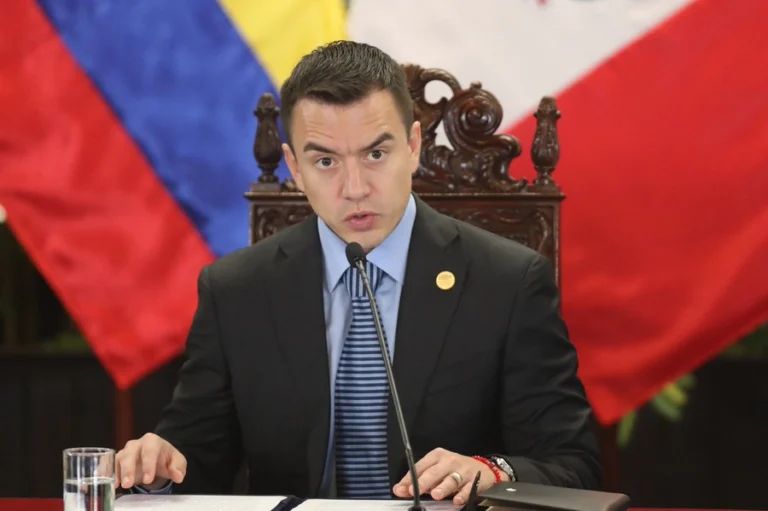Ecuador Cuts 5,000 Public Jobs and Shuts Down Ministries Under IMF-Linked Reforms
Ecuador has begun cutting public sector jobs and ministries as part of a fiscal overhaul linked to IMF agreements.

Thousands face layoffs as Ecuador restructures public sector under IMF-backed reform plan. Photo: @elnuevodiariord
July 25, 2025 Hour: 7:12 am
Ecuador has begun a sweeping state restructuring plan that includes the dismissal of 5,000 public employees and the reduction of nearly half its ministries—moves seen by unions as part of a broader austerity program tied to the country’s agreement with the International Monetary Fund.
RELATED:
Thousands Rally in Tel Aviv Against Gaza War, Condemn Ongoing Starvation
On July 24, the Ecuadorian government confirmed that 5,000 public sector workers will be removed from their posts and that 6 ministries and 6 national secretariats will be dissolved as part of a state reorganization strategy. The number of ministries will drop from 20 to 14, and secretariats from 9 to 3.
“These structural changes aim to create a more agile, efficient, and results-oriented government,” said presidential spokesperson Carolina Jaramillo during a press briefing in Quito. She noted that the cuts will affect administrative staff in several ministries and the Ecuadorian Social Security Institute (IESS), but will not apply to teachers, military personnel, or police officers.
The announcement comes amid a broader reform of Ecuador’s public employment regulations. Under a new legal framework, all public workers will undergo performance evaluations every six months. Two consecutive low ratings will now lead to automatic dismissal.
“This isn’t new. It’s been in the Public Service Law since 2010, but now it’s mandatory and more frequent,” Labor Minister Ivone Núñez said in earlier statements. A rating of “regular” will trigger an additional review within three months, potentially leading to termination if no improvement is shown.
Labor unions have strongly opposed the reforms. David Quishpe, president of the National Union of Educators (UNE), described the measures as “unconstitutional, political, and Machiavellian.” He warned that thousands of workers in education, health, and other sectors—many with temporary contracts—are now at risk.
Quishpe estimates that at least 44,000 teachers and 60,000 healthcare workers are currently employed under precarious terms. He also criticized Education Minister María Brown for failing to execute over \$1.5 billion in the sector’s budget. “If workers are to be evaluated, then ministers who don’t deliver results should be evaluated too,” he said.
In response, labor groups such as the Popular Front and the United Workers’ Front (FUT) have called for national mobilizations. “We reject this decree that undermines labor rights,” said Nelson Erazo, president of the Popular Front. Protesters are also demanding salary increases and job security guarantees.
Union leaders link the restructuring to Ecuador’s current deal with the IMF. The Extended Fund Facility (EFF), approved in 2024, requires the government to carry out a fiscal adjustment of 4.4% of GDP—equivalent to \$5.6 billion—between 2025 and 2028.
According to IMF figures, \$4.9 billion of that adjustment will come from increased tax revenues, while \$774 million must come from public spending cuts. On July 18, the IMF approved a new \$600 million disbursement for Ecuador, raising the total value of the financial agreement to \$5 billion.
As Ecuador begins to implement deep public sector reforms under pressure to meet IMF targets, tensions between fiscal policy and social rights are escalating. For many across Latin America and the Global South, the situation reflects ongoing concerns about the costs of austerity and the conditionalities imposed by international financial institutions.
Author: MK
Source: El Diario - EFE

